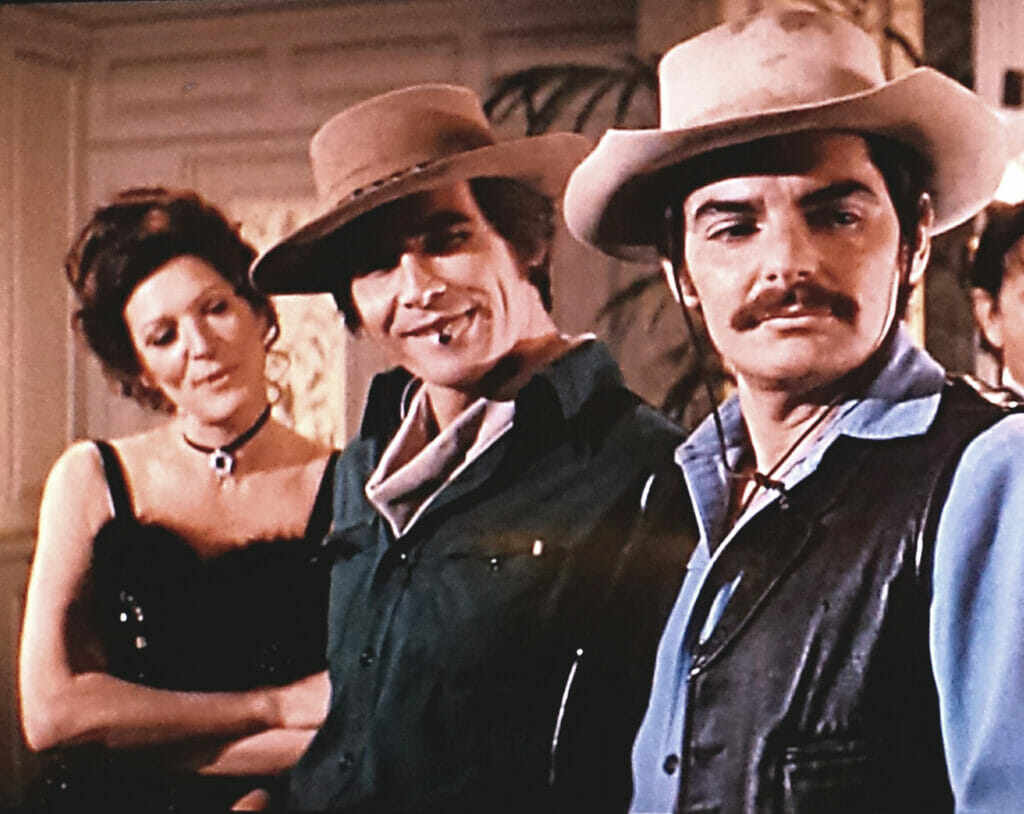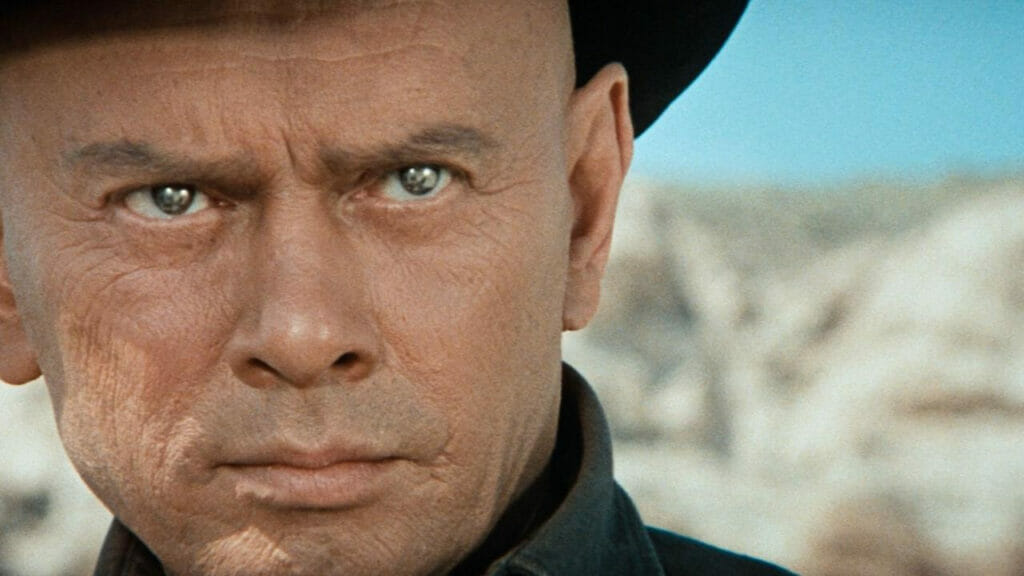Read also:
How to Watch FX Live Without CableHow To Watch AMC Without CableHow to Watch ABC Without CableHow to Watch Paramount Network Without CableMichael Crichton’s futuristic filmmaking debut gave a silly premise some thoughtful & unsettling weight.
This piece was written during the 2023 WGA and SAG-AFTRA strikes. Without the labor of the writers and actors currently on strike, the movie being covered here wouldn’t exist.
My mother was not much of a movie fan. They just never interested her that much, but when it became obvious that I was obsessed with them by the time I reached preschool age, she did nothing to discourage me. Every once in a while she’d let me know that the feature on the The 3:30 Movie (my primary outlet for watching films in those pre-cable, pre-VCR days) was something that I had to watch. Oddly, her instincts often proved to be correct and I was exposed at a very early (perhaps inappropriately so age to such films as The Producers, Duel and the Joan Rivers-penned TV movie The Girl Most Likely To. . ., all of which would be long-standing favorites of mine.
One of her suggestions was a bit puzzling because it appeared to be a science-fiction film, a genre that she had no affinity for at all. It was also kind of violent (even cut for television there was still a pretty significant body count), and the only people in it I immediately recognized were the guy from The King and I and the dad from Eight is Enough. Despite all of this, she evidently had a feeling that I would dig Westworld, the big-screen filmmaking debut of author Michael Crichton, and man, was she ever right.
Set in the far-off year of 1983, Westworld introduces us to Delos, a high-tech adult version of Disneyland. The park features three distinct areas—Western World, Medieval World and Roman World—populated with highly advanced robots interact with the guests in ways ranging from duels to the death to sexual encounters, with the guests always winning and the robots being sent off to maintenance afterwards before it all starts again the next day. Our guides to this wild playground are repeat visitor John Blane (James Brolin) and his friend, first-timer Peter Martin (Richard Benjamin), who head off to Westworld, where they are soon accosted by The Gunslinger (Yul Brynner), a black-clad gunman that Peter dispatches with ease, using guns that fire real bullets, but are equipped with sensors that prevent them from firing at anything with a high body temperature.
Everything seems all well and good, but behind the scenes, some of the technicians are growing worried. It appears that some sort of mass technical malfunction has begun to infiltrate the robots, leading to an increase in breakdowns, system failures and refusal to accede to the guests’ demands. Although a top supervisor scoffs at the notion of a so-called “computer virus,” another points out that the technologies involved are so complicated that even they aren’t entirely sure of what exactly makes them tick or what might happen if they were to completely malfunction.

Sure enough, things go haywire as the Medieval World’s Black Knight kills a guest during a sword fight and the panicked technicians try to regain control by shutting down the park’s power supply, a move that results in trapping them all in the control center while allowing the robots, now operating without any safeguards, to roam the park and attack the guests for as long as their reserve power holds out. Back in Westworld, the Gunslinger once again confronts the unaware Peter and John but when John goes down in the ensuing duel, the terrified Peter finds himself running for his life throughout the park with the android in relentless pursuit.
For the premise of Westworld to work requires viewers to make a number of significant logical leaps. Even as a kid it struck me as odd that the park was apparently handing out firearms to both the visitors and robots alike. Then again, this was a park that had the most cutting-edge technology imaginable, yet included a control room that effectively trapped everyone inside and left them to die from suffocation if the power was cut. Others have pointed out that while the Delos creators were so far unable to make the hands of the robots convincing—it was the only sure way to tell them from humans—they evidently put considerable time and effort into making sure that their sex organs were as convincing as possible. In hindsight, it does make sense: this was also the time of The Stepford Wives, which took the same joke and spun an entire narrative out of it.
And yet, these lapses ultimately don’t really matter because Crichton handles the potentially goofy material with such skill and energy that you barely even register them until long after it’s over. As a first-time director working for a studio that at the time was known for being fairly stingy with budget, Crichton didn’t have a ton of money to work with, but made a lot of ingenious choices to make the most of what he had. Among the most ingenious was the decision to set most of the action within the confines of Westworld. Not only would the look and feel of the Old West be infinitely cheaper and easier to accomplish, the iconography was so familiar that it allowed Crichton to lure viewers in by embracing the cliches before surprising them (much as Peter and John are surprised) when they discover that the rules they thought they knew have literally been short-circuited. One of the most ironic ideas on display in the film is that it’s only when the park goes sideways and the formerly regimented robots run amok that the worlds actually begin to resemble the periods they represent.

Most of Crichton’s other efforts, both as a writer and as a filmmaker, were presented in such coldly clinical ways that, while admirable om a technical standpoint, they rarely if ever inspired genuine emotional interest. Westworld proved to be the exception to that. He keeps everything moving in an efficient and exciting manner and while some of the early scenes may be a little clumsy, once the film limits itself to the pursuit between Peter and the Gunslinger, he generates some legitimate thrills without ever going too far overboard.
Crichton also gets some good performances from Brolin as the self-satisfied alpha male who is determined to prove himself as a man to his friend (without acknowledging that he’s doing so in the context of an amusement park rigged so that he can’t lose) and Benjamin as the more neurotic type who unexpectedly finds himself in an authentic life-or-death situation that everyone else has only been playing at. As for Brynner, he may have taken on the part primarily for the money, but I would argue that his work here rivals his turn in The King and I as the most iconic of his career. He genuinely comes across as robotic throughout (I mean this as a compliment) and despite having virtually no dialogue, his presence is mesmerizing.
Although hailed as a forward-looking thriller when it came out a half-century ago, Westworld has proven itself to be the rare film from that era that hasn’t really dated itself. Outside of the big clunky computers used in the control room, the technological details are minimal enough that they don’t come across as too anachronistic in the present. It would also prove to be ahead of its time in other ways, ranging from its introduction of the concept of a computer virus to its obvious influence on a number of sci-fi narratives that would emerge in its wake, particularly James Cameron’s Terminator, another ingenious low-budget movie revolving around a relentless killer robot of few words that made up for its lack of a lavish budget with a clever screenplay and smart, efficient filmmaking. Plus, kudos for coming up with the then-outrageous suggestion that people would be willing to pay $1.000 a day to go to an amusement park.
Crichton himself would later rework his idea of a high-tech theme park that goes sideways due to a combination of greed, hubris and technological mishaps into a little thing called Jurassic Park. Obviously, both the novel and subsequent screen adaptation (not to mention the respective sequels) were juggernauts that dwarfed Westworld from a commercial perspective but neither one came close to topping what he had already pulled off so brilliantly nearly two decades prior. Although no sane person would make any claim for Crichton as a particularly outstanding filmmaker (his subsequent films would range from the moderately interesting Coma and The Great Train Robbery to the ludicrous Looker and Runaway to the inexplicable Physical Evidence), he did hit greatness in that regard once with Westworld, a true cinematic A-Ticket ride for the ages.